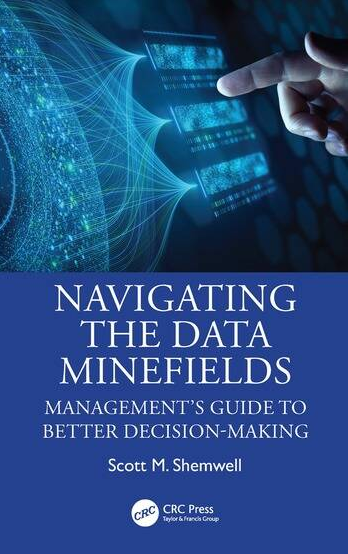“For the only way in which a durable peace can be created is by world-wide restoration of economic activity and international trade.” – James Forrestal
A recent article reviewed games that might be akin to the international trading process, chess, poker and bridge. That author argues that so much of our rhetoric is militaristic. We are going to “target” and, “fighting” for you, “outmaneuvering,” and so on sends the message that somehow, we are in a battle?
If we are in a battle, who wins and what is the prize? Typically, a military victory results in the destruction of the foe(s). This pundit is not sure this is a good global model. The approach has been tried many times in history, the Greek Alexander the Great, the Roman Empire, various European colonization, parties from Word War I and World War II, the Cold War, etc. The result is always the same–a continuation of tensions leading to the next and more violent conflict. If the goal is to limit the global population, we seem to be getting pretty good at it.
All of these classic games have a winner or at least a stalemate. So, in this context, how do we define Winner?
Win-Win
A more satisfactory global engagement can lead to the world that the first US Secretary of Defense sought.
“Game theory is the study of mathematical models of strategic interactions. It has applications in many fields of social science, and is used extensively in economics, logic, systems science and computer science. Initially, game theory addressed two-person zero-sum games, in which a participant’s gains or losses are exactly balanced by the losses and gains of the other participant. In the 1950s, it was extended to the study of non zero-sum games, and was eventually applied to a wide range of behavioral relations. It is now an umbrella term for the science of rational decision making in humans, animals, and computers.”
In the 1990s, this author used game theory to assess international business negotiations, Cross-cultural negotiations between Japanese and American businessmen: A systems analysis (exploratory study). One of the influences for that study was the early 1980s book, Getting to Yes – Negotiating Agreement Without Giving In. In their book, Roger Fisher and William Ury set out Four Principles of Effective Negotiation, summarized as follows.
- Separate the People from the Problem
- Focus on Interests not Positions
- Invent Options for Mutual Gain
- Insist on Using Objective Criteria upon which to Base Agreement
A common theme among these points it the de-escalation of personal animosity that might exist/develop. By focusing on the common or mutual goal(s), the win-win outcome is possible.
All Can Win
Winning is ingrained in our human psychic. Survival of the fittest has served our evolutionary development process well. However, collaboration is not mutually exclusive with winning. Humans have banded together for the common good since the beginning. It is possible for both or multiple parties to a ‘deal’ to feel that their best interests are served. Isn’t this the basis of a successful marriage?
The quote “Winning isn’t everything, it’s the only thing” by the legendary NFL coach, Vince Lombardi is not as singular as it first appears. It has additional dimensions, “Resonates with a competitive spirit and the desire to be the best, it is crucial to recognize that life is not solely about winning. This interpretation aligns with a broader perspective on success, one that focuses on personal growth, resilience, and the lessons gained along the way.”
Classic games and military jargon are useful tools for today’ so-called business road warriors. They stand the test of time because we all can relate to conflict. Even after hostilities cease, countries and societies must be rebuilt in a useful way. After World War II, both Germany and Japan were rebuilt and became the positive global influences they are today.
We addressed this recovery process in a LinkedIn post, Trump’s Marshall Plan in February 2025. Out of the depths of despair a new and better world emerged. This writer believes we can still help the defeated and even crushed Bridge to a Long-Term Win in the Lombardi spirit.
How are you helping assure your organization and its ecosystem participants are Winning?
Pre order our new book, Now Available
Navigating the Data Minefields:
Management’s Guide to Better Decision-Making
We are living in an era of data and software exponential growth. A substantive flood hitting us every day. Geek heaven! But what if information technology is not your cup of tea and you may even have your kids help with your smart devices? This may not be a problem at home; however, what if your job depends on Big Data and Artificial Intelligence (AI)?
Preorder May 23, 2025
We are also pleased to advise our loyal readers that CRC Press has accepted our proposal for this forthcoming book, Nonlinear Big Data and AI-Enabled Problem-Solving: Transforming From A Spreadsheet Society. Publication 2026. Stay tuned for more details.
For More Information
Please note, RRI does not endorse or advocate the links to any third-party materials herein. They are provided for education and entertainment only.
See our Economic Value Proposition Matrix® (EVPM) for additional information and a free version to build your own EVPM.
The author’s credentials in this field are available on his LinkedIn page. Moreover, Dr. Shemwell is the coauthor of the 2023 book, “Smart Manufacturing: Integrating Transformational Technologies for Competitiveness and Sustainability.” His focus is on Operational Technologies.
We are also pleased to announce our forthcoming book to be released by CRC Press in June 2025, Navigating the Data Minefields: Management’s Guide to Better Decision-Making. This is a book for the non-IT executive who is faced with making major technology decisions as firms acquire advanced technologies such as Artificial Intelligence (AI).
“People fail to get along because they fear each other; they fear each other because they don’t know each other; they don’t know each other because they have not communicated with each other.” (Martin Luther King speech at Cornell College, 1962). For more information on Cross Cultural Engagement, check out our Cross-Cultural Serious Game. You can contact this author as well.
For more details regarding climate change models, check out Bjorn Lomborg and his book, False Alarm: How Climate Change Panic Costs Us Trillions, Hurts the Poor, and Fails to Fix the Planet.
Regarding the economics of Climate Change, check out our blog, Crippling Green.
For those start-up firms addressing energy (including renewables) challenges, the author can put you in touch with Global Energy Mentors which provide no-cost mentoring services from energy experts. If interested, check it out and give me a shout.

